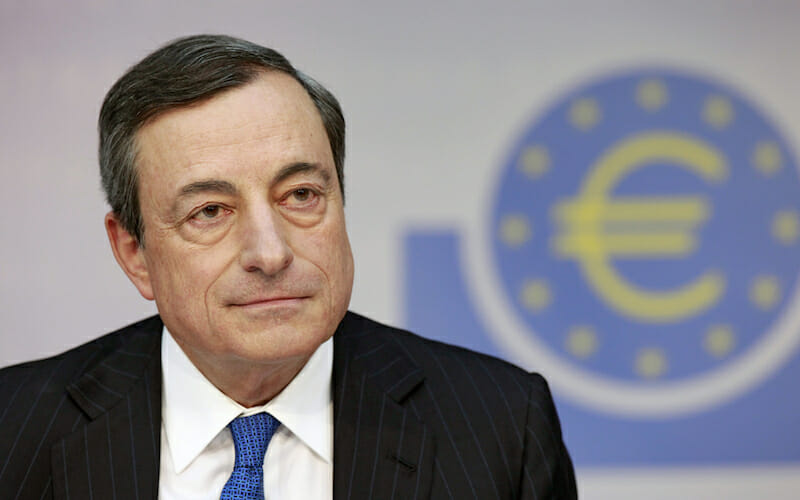
Banks and Their Inevitable Crashes
In a market economy, the financial system gives money from savers (i.e. depositors) to those who need to borrow money. The financial system has a monopoly of services. Only banks can accept deposits and only insurance companies can provide insurance services.
In the past, one of the reasons the ancient Greek states were strong was because they created their own currencies. In the times of Pericles, the silver Drachma was the reserve currency of that era or the golden currency of Philippe of Macedonia. Each of these currencies could be redeemed for gold. Today the Fed creates dollars and the ECB creates Euros, which are both fiat currencies, i.e. money whose value is solely backed by a central government. Central banks circulate coins and paper money that contribute just 5%-15% towards the money supply; the rest is virtual money, an accounting data entry.
It should be noted that central banks are not state banks, but private companies. Which countries have given the right to issue money to private bankers. In turn, these private central banks lend to the states at a rate of interest. The paper money circulated in a country is actually public debt. Countries owe money to the private central bankers; the payment of this debt is ensured by issuing bonds and levying taxes. A bigger public debt means bigger taxes.
The presidents of these central banks cannot be fired by the governments and do not report to them. For example, the ECB is not controlled by the European Parliament or the European Commission. The state or borrower issues bonds, which means it accepts that it has an equal amount of debt to the central bank. Thus, central governments create money from zero and lend it to bond-buyers. This money is lent through accounting, as the interest does not actually exist, it is just on the loan contract obligations. This is the reason why global debt is bigger than real debt.
When a country has its own currency, it can “oblige” central banks to accept its state bonds and lend to the states. Therefore, national bankruptcy is avoided, since the central bank acts as a lender of last resort. ECB is the exception, since it does not lend to EU member-states. The non-existence of a Europe safety net leaves the Eurozone countries at the mercy of the “markets,” which can impose punitively high interest rates to debtor nations like Greece. Recently the European safe bonds have gained ground, despite the differences in Europe amongst policymakers. Germany is the main obstacle to this, since this would cause the Euro to become devalued & thus would raise Germany’s borrowing interest rates.
The US borrows its own currency from the Fed. Thus, the dollar- and state debt- becomes devalued, meaning domestic products become cheaper, while imported products become more expensive. A country with a strong primary (agriculture) and secondary (industry) sector can become more competitive by having its own currency. Banks with between $16 million and $122.3 million in deposits have a reserve requirement of 3%, and banks with over $122.3 million in deposits have a reserve requirement of 10%. Therefore, if all US depositors decide to withdraw their savings at the same time, banks will default without a bailout from a government entity like the FDIC.
As Professor Mark Joob stated, no one can escape from paying interest rates. When someone borrows money from the bank, he has to pay interest on the principal. Everyone who pays taxes pays the interest rate of the initial borrower, since taxes have to be collected to pay the interest rates of the public debt. All companies and individuals that sell goods and services have to include the cost of loans in their prices. In this way, the whole society subsidizes banks, though part of this subsidy is given as interest rate to depositors. This is why bankers have huge salaries and why the banking sector is so huge: society subsidizes banks. Poor people usually have more loans than savings, whereas rich people have more savings than loans. Thus, after interest is paid, money winds up being transferred from the poor to the rich. Poor people also pay a higher portion of the government’s sales tax revenues, further exacerbating this wealth divide.
Commercial banks gain from investments and from the difference between interest rates for deposits and interest rates for loans. This compound interest exponentially boosts the initial capital. However, real money is not increased. Only human labor can create interest rates of increasing value. There is a downward pressure for salaries cost and a simultaneous increase in productivity. This happens because human labor needs to satisfy the demands of exponentially increased compound interest.
The borrower has to work to get the real money, in other words, banks lend virtual money and get real money (worker’s tax dollars) in return. Bankers have thus noticed that they can lend more money than they have from depositors. This is called fractional reserve banking: “a banking system in which banks only hold a fraction of the money their customers deposit as reserves. This allows them to use the rest of it to make loans and thereby essentially create new money. This gives commercial banks the power to directly affect money supply. In fact, even though central banks are in charge of controlling money supply, most of the money in modern economies is created by commercial banks through fractional reserve banking.”
Are savings truly protected?
In the cases of Italian debt and Greek debt, we have heard from politicians (who are actually paid employees of the bankers) that they want to protect people’s savings. However, savings aren’t actually protected in this monetary and banking system. The banks have low reserves in cash. This is the reason that they need their customers’ trust. In case of a bank-run, they would face liquidity problems and they would bankrupt. EU deposit guarantee rules protect depositors’ savings up to €100,000 but in case of chain reactions and the FDIC protect up to $250,000 in Americans’ savings accounts. However, commercial banks would still need to be bailed out by the governments.
The economic system as it is shaped by the power of banks is not viable and it does not serve human values such as freedom, justice and democracy. It is irrational and should be immediately changed if we want humanity to survive.

